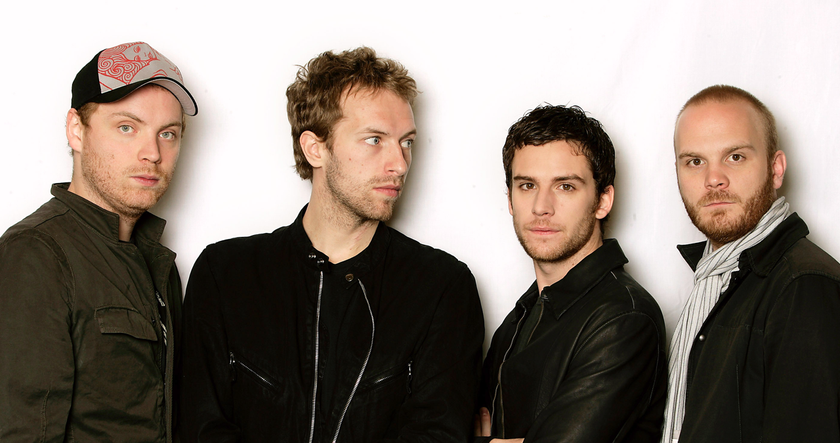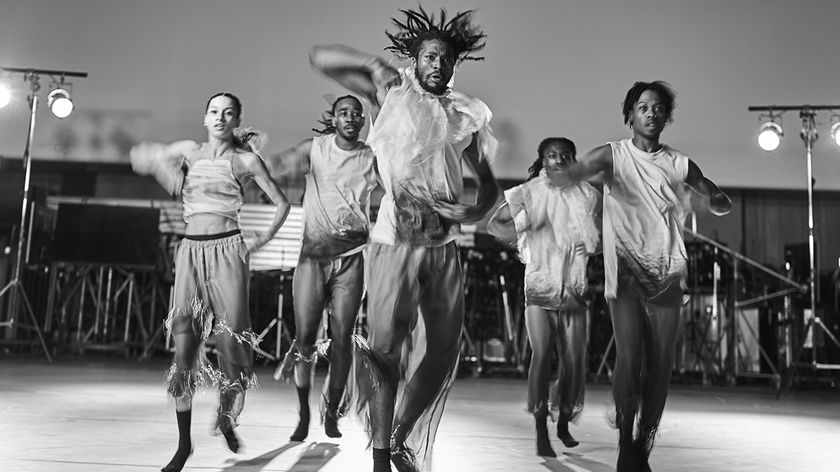Earl Slick: my 12 greatest recordings of all time
"With David Bowie, we don't nitpick. We knock around some ideas, and we get it done."
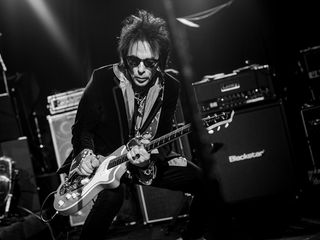
Earl Slick: my 12 greatest recordings of all time
Even though he’s worked with David Bowie since 1974, guitarist Earl Slick was as much in the dark as the rest of the world that the Thin White Duke was making his first album in 10 years.
“Unbeknownst to me, David had been recording for a while,” Slick says. “He’d been working for a period of about a year before I even got involved. Nobody, even the other band members who I talk to often, ever said anything to me. But it was just an oddball thing: I did a gig in New Jersey and I stayed with a friend. We went for a ride in his Cobra, and the car caught on fire. One of the guys from the newspaper that came to cover the thing recognized me, so there was some press about it.
The next day, Slick received an e-mail from Bowie, asking the guitarist if he was OK. This was followed by another e-mail in which Bowie inquired about Slick's schedule. "And then, over the period of the next 24 hours, we put together the schedule for me to come into the studio," says Slick. "So I have my buddy's Shelby Cobra blowing up to thank for that one. Sucks for him, but that’s how it happened.”
On 12 March, Bowie's The Next Day will be released, and early reviews are already heralding it as a return to form for the mercurial singer-songwriter. It should also serve as a solid reminder of Slick's guitar prowess, idiosyncratic talents that have made him Bowie's go-to guy for nearly 40 years. John Lennon, too, counted on Slick to add street-rock guitar crunch to his last recordings, and no doubt their relationship would have continued had the events of 8 December 1980 turned out differently.
On the following pages, Slick looks back at some of the key recording sessions that he's been a part of, songs and albums that are at the very fabric of classic rock.
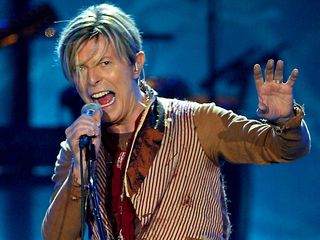
David Bowie - Dirty Boy (2013)
“In the studio, even when songs are unfinished, I know when they’re good, and let me tell you, this new record of David’s is the shit. The tracks were all in different stages. As a matter of fact, we cut three new ones with me, [drummer] Sterling [Campbell], David and [producer] Tony Visconti on bass. I overdubbed maybe another five tracks that were already done but needed guitar. They had Gerry [Leonard]’s atmospheric stuff, but they needed some of my crunch. So I that’s what I did, all of it in five or six days.
“With David Bowie, we don’t nitpick. We knock around some ideas, and we get it done. As soon as it feels good, we record it. So we always get a lot of work done in a short period of time, and it’s always really good work. It was great to reconnect, and it was great to see David looking and sounding so good.
“It’s a Bowie record, so I hear a lot of things coming from David’s recordings from before and his influences – a little bit looking back and a little bit looking forward. So there’s some stuff on there that he really hasn’t done before, but it’s also touching on elements of things from the past.
“I think it’s kind of beautiful that, up until now, only really David and Tony have heard the record. It was a really special experience working with David again, and I think people are going to be knocked out.”
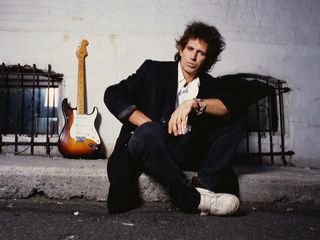
Phantom, Rocker and Slick - My Mistake (1985)
“The ‘80s were kind of void for me. It was a weird period, but I did a lot of touring, and I got Keith Richards to play on my record – it doesn’t get any better than that. You wanna talk about the guy who’s had the most influence on me than any guitarist on the planet? I mean, right down to the jeans.
“If you’re going to emulate someone, you might as well emulate somebody as big as Keith. I look at my thing with Keith the same way he looks at his thing with Chuck Berry. I studied Keith the way he studied Chuck. He’s very open about that, and I’m very open about this.
“For My Mistake, it was a simple as asking him. I was in the studio mixing the Phantom, Rocker and Slick record, and I got a phone call from the co-producer, Steve Thompson, saying that he was working with Mick Jagger and David Bowie, who had redone Dancing In The Street. So he says, ‘I’ve got Jagger in the studio, and he wants you to come in and play guitar on it.' So I said, ‘OK, I’ll see you guys tomorrow.' And Steve said, ‘No, he wants you to take the red eye.’
“Now I’m like, ‘What the fuck, man? What’s the difference whether I get there in the afternoon or first thing in the morning?’ I hear this pause, and Jagger gets on the phone. ‘What do I have to do, come and get you?’ he asked. I said, ‘OK, I’ll see you in the morning.’
“As a result, I get in there, we put the guitars on, but it was his birthday, too. So he invites me to his birthday at the Palladium. And, obviously, the Stones were there. I ran into Keith and Woody, and as I was chatting with Keith, I said, ‘You know, Keith, I’m mixing a record, and I’ve got a track that I’d love you to play on. How do we do that?’ And he said, ‘Done. Call my manager and make arrangements.’ So he’s on My Mistake.
“I took my solo and fills off, and if you listen to it, Keith’s on the right and I’m on the left. You can tell the difference. As much as it’s a Stonesy guitar part for me, Keith did the solo, and we did trade-offs at the end. It’s just phenomenal, absolutely phenomenal to have done that. If you look at Keith’s site, he’s got it listed in his session work. Not too bad.”
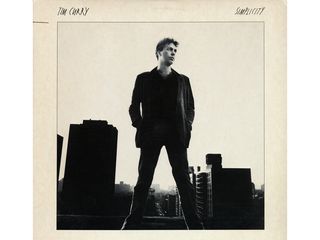
Tim Curry - I Put A Spell On You (1981)
“I didn’t know what to expect from this session, but it was really cool. Michael Kaman produced it, and David Sanborn was on the session, so that was great. I’m just really happy with this version of I Put A Spell On You. We also did a very cool track called Working On My Tan.
“Michael brought in a Jamaican band, and there was this really great push and pull between the way David and me and the way the Jamaican guys were playing. It was just kick-ass chemistry. Michael was my mentor, so doing anything with him was always great. He took me under his wing when I was about 19 years old, and he brought me into some sessions with the Neville Brothers. Dr. John was on those sessions, too. It was a serious highlight playing with these kick-ass New Orleans guys.
“I don’t know what ever happened to those recordings, but they were my first really memorable experiences in the studio. So reuniting with Michael on the Tim Curry record was great.”
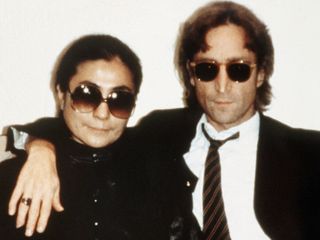
John Lennon - Nobody Told Me (1984)
“I think Nobody Told Me and Starting Over were started in the first couple of days of each other during the Double Fantasy sessions. But the funny thing is, there’s no difference in my mind as to the sessions for Double Fantasy and Milk and Honey, because the songs were all recorded in one go. The songs that are on Double Fantasy were just the first batch that John picked. I’m sure he and Yoko each picked their favorites, and then they assembled the album.
“The idea was to go back into the studio in January of 1981, finish the overdubs and mix it and then have a second record in the can so they could go out and tour, which obviously never happened.
“For Milk and Honey, I know I didn’t do any overdubs, and to me it sounds like what we did in the studio live. So it’s funny that Nobody Told Me ended up on the album, because it was one of the first ones we cut. I played my ’65 SG Jr. and the black Les Paul that I used on Station To Station, and then I bought a Sardonyx because John had one. The bulk of the album was on my Les Paul and SG Jr., which I played through my 100-watt Marshall.”
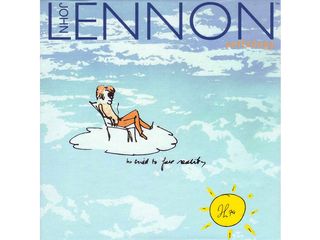
John Lennon - I Don't Wanna Face It (1998)
“I love I Don't Wanna Face It. The version on Milk And Honey is great, but I especially love the outtake on The John Lennon Anthology, because right before the solo John calls out my name – ‘Mr. Slick!’ When I got the disc – because by the time it came out, he was gone – I must have listened to that song 150 times the first few days I had it. Just hearing John say my name brought back such good memories. It was like, ‘Christ almighty, would you listen to that?’
“It also happens that I Don't Wanna Face It and Nobody Told Me are my favorite songs on Milk and Honey. For I Don't Wanna Face It, we did do one overdub. We were done tracking, and I was headed back to LA, where I was living at the time, and as I was ready to leave, John called me and said, ‘I’ve got one more for you.’
“When I got to the studio, John and I overdubbed the guitar solo together. It’s kind of a double-stop thing. We did it live in the studio in something John called an 'old Beatle trick,' where we had two little Princetons or something facing each other, with a stereo mic on the amps, and we just did it facing each other in like two takes.”
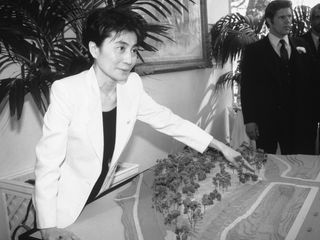
Yoko Ono - Kiss Kiss Kiss (1980)
“I really enjoyed playing on Kiss Kiss Kiss. I got to do some really wacked-out feedback stuff, and it holds up. Yoko was so ahead of what everyone was thinking at the time, and she really hasn’t gotten her due. We all knew which songs should feature Hugh McCracken and which songs should feature me, because we do play differently. But on this one, John, Yoko and I worked on it together, because this was a little edgier and off the wall.
“Hughie did the more intricate, melodic stuff. This one was recorded at the Hit Factory, when it was on 48th Street. It was funny being there because I was one of the first people ever to record at the studio – part of the Earl Slick Band’s album was cut there the first year it was open, not long after David Live.
“The cool thing about the Double Fantasy record was that you had the likes of Tony Levin and Andy Newmark and Hugh McCracken, guys who did a lot of sessions, but I didn’t do a lot of sessions because I couldn’t read. So one of the reasons that I was brought in was because Jack Douglas referred to me as the ‘wild card.’ John wanted one street guy in there, and that was me. On this particular track, they just turned me loose with my feedback thing."
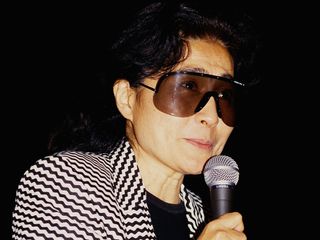
Yoko Ono - Walking On Thin Ice (1981)
"Yoko’s tune Walking On Thin Ice was cut during the Double Fantasy sessions, and it's absolutely one of my top recorded moments. John and I did some really cool stuff on that record. So let’s be sure to give that one an honorable mention.
"I really enjoyed doing her album Season Of Glass, too, even though John was gone. Phil Spector was there, although that lasted about a week and a half until she got rid of the crazy bastard.
“I was so glad when Phil was gone. He would only talk to us through the engineer, and he had the control room all blacked out. It was a shame because I was really looking forward to working with Phil Spector, but it was nothing like what I expected it would be like. I think Yoko got the vibe that he was really affecting the band in a bad way. We were a band by then, so once he was gone we just worked with the engineer and got it down.
“The sessions were only seven months apart, so it was almost like we were continuing — just John wasn’t there. But I did some really cool stuff on that record, and it was really good to get together with everyone from Double Fantasy. It was like it was a process for Yoko to deal with the situation by making music with all the same guys. Losing John right after the sessions was really hard, and to never see the guys again would have been awful. It was a great thing for us to get back together.”
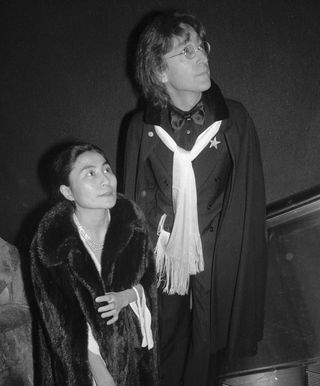
John Lennon - I'm Losing You (1980)
"I’m Losing You was really cool because John, Hughie McCracken and I went in the control room, and John divided up our parts: ‘Slick, you play the first bit; Hughie, you play the second; Slick, you play the third; and then Hughie, you finish up with the fourth.’ So I came up with my two ideas, and Hughie came up with his two, and we did them together. There must be, like, four tracks of guitars going on there.
“It’s just really clean and compressed. If you listen to it, you’ll notice this swell come up – that’s the compressor. Once we composed the solo, Hughie and I quadruple-tracked that and played it together. That was really cool, and John was really excited and jumping around the control room. That was great.
“Now, I’ve heard the Cheap Trick version of I’m Losing You, and I love it, but if you ask me, I think the reason John didn’t want to use it was because Cheap Trick’s sound is so identifiable – he didn’t want his stuff to sound like it was a Cheap Trick record. He didn’t even play their version for us. I don’t think he wanted to put ideas in our heads. But I love Trick’s version, and I think Rick [Nielson] did a monster job on it.
"You know, we filmed the I’m Losing You session, and that’s the infamous missing footage that’s never surfaced anywhere. We filmed the whole day – you can hear all the audio outtakes if you look for them.”
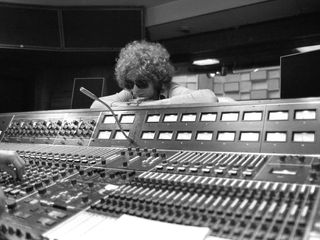
Ian Hunter - Wild And Free (1977)
“That was a great album and a great experience, but from a guitar standpoint the track Wild And Free really stands out. It was really cool because it was an uptempo kind of punky rocker thing, and once again, it was the sort of solo I would have done on a Bowie record.
“Overnight Angels was recorded not long after Station To Station, actually, so I was in the same mode, and I even used the same Strat that I used on Stay. It was recorded up in Canada at a place north of Montreal called Le Studio – and the place burned down while we were recording! It's a really aggressive guitar part on that track, and it’s one of my favorite cuts off that album. Ian was in a great place, and we really had a great time making that record, except for the fire. The guitar burned up, too.”
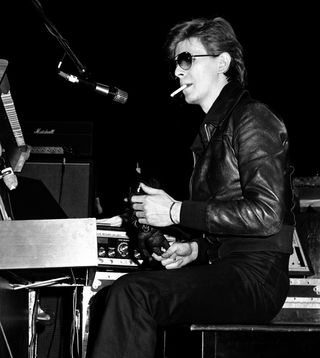
David Bowie - Station To Station (1976)
“Station To Station was a really cool track because we were assembling it as we went along. Like on Stay, we really had a pretty tight arrangement worked out, but Station To Station was developed in the studio. Station To Station is really like two songs stuck together; there’s the grungy tempo part, and then in the middle it goes up to that uptempo bit. The feedback at the beginning of the track was me and David going through two sets of Marshall stacks in the live room at Cherokee Studios. It was two in the morning, and we were just feeding back like two crazy guys.
“I’m not sure who played what, but there were two guitars going at the same time: a Stratocaster and a Les Paul. For the solo in the second half of the song – the uptempo part of the song – I remember sitting there constructing that with David. It starts off with a Chuck Berry kind of lick, and then we just sat there with two guitars, banging around on things I came up with and working up the solo. So it wasn’t comp’d – we composed it, which is something we rarely did to that extent. I remember very clearly sitting there together and composing it. That’s a pretty good memory.”
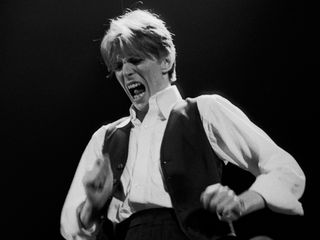
David Bowie - Stay (1976)
“It started with a groove, and when I came up with the guitar bit at the front I could tell it would be a monster song. The funny thing about it is, I came up with that lick because we were messing around with an older song called John, I’m Only Dancing. This is kind of foggy, but I think we were working on a new arrangement of it, and David wanted me to come up with a lick, and so I came up with the lick that starts off Stay. So instead of using it on John, I’m Only Dancing, David just wrote something around that lick and groove.
“The rhythm guitar was an early ‘70s black Les Paul through a late-‘60s 100-watt Marshall stack. The lead was on an early ‘60s Strat. I only owned one pedal, so there's no effects. Just straight through the amp, no master control. Old school. Just turn it up to 10 and blast away."
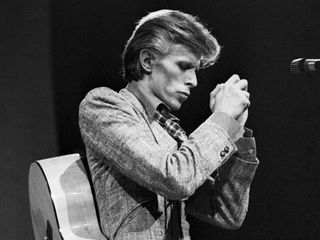
David Bowie - David Live (1974)
“This is an entire piece of work, rather than just a track, because it’s a live album. I was the only guitarist, and it was the tour that followed the Diamond Dogs album. So the first time I ever recorded with David Bowie was a live album. Being on stage with David, David Sanborn, Michael Kaman and Mike Garson was just an amazing experience.
“I was just a kid, only about 21 or 22. I had no idea at the start of the tour that we would be making a record, so my reaction was just, ‘How cool is this?’”

“He was like, ‘You’ve got it all wrong, man": Mumford & Sons reveal what Neil Young told them about the way they were approaching their live shows and album recordings
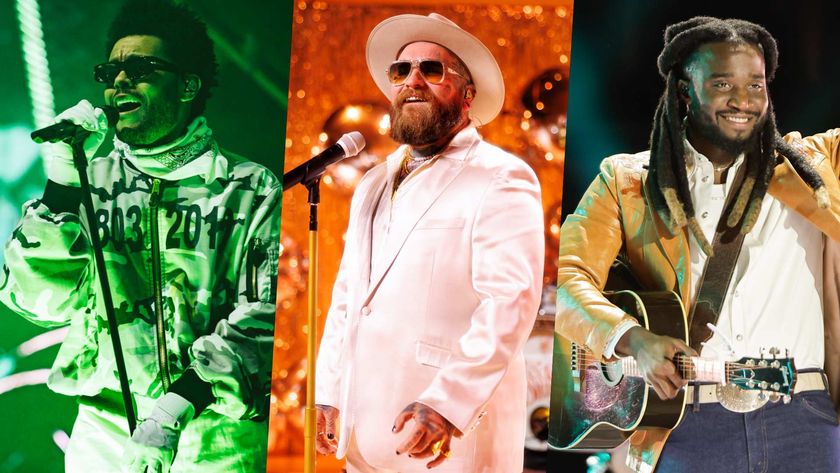
How to write a ‘sticky’ hit: Pure luck can put you in the charts, but sticking around to make the big bucks needs pure science

“He was like, ‘You’ve got it all wrong, man": Mumford & Sons reveal what Neil Young told them about the way they were approaching their live shows and album recordings

How to write a ‘sticky’ hit: Pure luck can put you in the charts, but sticking around to make the big bucks needs pure science
